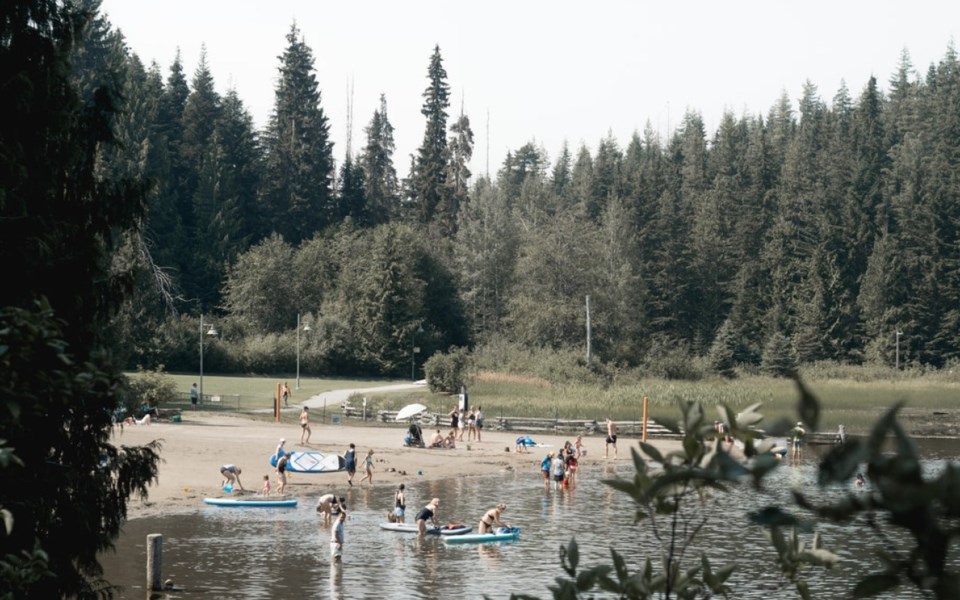
Like it has with so many other facets of life, the COVID-19 pandemic has thrown Resort Municipality of Whistler (RMOW) finances into uncertainty.
While an earlier-than-usual start to the RMOW budgeting process brought the five-year financial plan before council in December 2019, "that five-year plan is now up for some revision," said director of finance Carlee Price, in a presentation to mayor and council at the April 7 council meeting.
"We don't know when these revisions are going to happen; we prefer to wait until things are much clearer, but the community can fairly expect that by the end of 2020 the actual numbers will look quite different than what we expected at the end of 2019."

Planning effectively for the financial impact of COVID-19 is "one of the sharpest challenges" facing the municipality, Price said, and it involves making a lot of assumptions—some that are changing as fast as the news.
"So for example, when the announcements were made by the province in mid-March (around physical distancing recommendations), we were adjusting the expectations around tourist visits. As the borders were closed, we adjusted those expectations again," Price said.
"This is a process that will continue through the entirety of the closure."
Incoming cash has "slowed to a trickle" with no hotel tax revenue, transit fares, Meadow Park Sports Centre fees, parking tickets or parking passes, Price added, and "we're not seeing the same money coming into the organization that would be normal for this time of year."
But costs have continued, meaning the RMOW's reserves may come into play sooner rather than later.
"The role of reserves in a crisis—and specifically here I'm talking about the operating reserve—is to bridge any gap," Price said. "So an operating reserve is specifically set aside in cases where the municipality may run into trouble with the revenues coming in, or expenses becoming unusually large. We do have an operating reserve at the municipality, and we do expect to call on this reserve in the coming months."
The RMOW's operating reserve balance (unaudited) at the end of 2019 was $6,145,555.
Also shrouded in doubt are the length of the shutdown and the "shape" of the potential recovery, Price added.
"Once things return in Whistler and elsewhere to relatively normal status, it will take some time for visitors to return," she said, noting that families will need to rebuild their own savings before planning vacations.
"So even once the shutdown is complete, we need to think about what the shape of the recovery—whether it's in the second half of 2020 or even reaching into 2021—looks like, and how that influences our estimates as well."
What does all of this mean for the average Whistler taxpayer? That, too, is yet to be seen.
The 2020 tax bylaws—based on a 2.8-per-cent property tax increase, along with two-per-cent increases to sewer, water parcel and solid waste fees—have yet to come to council for first readings.
Price noted the RMOW has received a number of inquiries about property taxes, and whether there might be a deferment.
The RMOW is still waiting on provincial decisions around tax timing, she said.
"I would note that the RMOW's ability to act independent of any decision from the province is extremely limited," she said.
"Action also has cash effects—any deferment of taxes to the community would have an effect on our ability to continue to carry the cash through to the new payment window."
In Pemberton, local officials changed course from a five-per-cent tax increase in light of the pandemic, finding enough cuts in the budget to avoid an increase this year (see related story on page 24).
While Whistler's budget is no doubt a different animal, could we see something similar from mayor and council locally?
"Our priority now is to ensure we are well-equipped to serve this community during this incredibly difficult time," said Mayor Jack Crompton after the meeting.
But tax adjustments or not, some community groups are already experiencing municipal cuts, like those that receive Fee For Service (FFS) funding from the RMOW.
The Whistler Off-Road Cycling Association saw its FFS funding fall from $120,000 to $40,000 because of the pandemic (see related story on page 38).
"We're in this period now where we have so many unknowns, there's been huge economic impact, obviously, in the community, so we're moving very carefully in terms of what might be normal expenditures like a FFS," said Chief Administrative Officer Mike Furey.
The RMOW's priorities at the moment are things like essential services, helping those in need, and supporting social services, he added, pointing to enhanced support for the Whistler Community Services Society through both money and loaned staff (as well as other organizations).
"When we look at things like FFS, we're trying to approach it and go, 'Well you know, maybe this is not the year where we build another 'Into the Mystic' trail,'" he said.
"We're looking closely at all of our projects, [and] we're trying to prepare for the unknown—how long this might go on, what might be the impact, what might be our recovery period—and we're trying to make very cautious and careful decisions."
With so much yet to be known about how the COVID-19 pandemic will impact Whistler in the long-term, how are officials reassuring the community?
"We're in a really interesting time as a community, and as a country," Crompton said. "I am confident that Whistler and British Columbia and Canada will pull together and come through this strong."
The community can expect a very "fulsome financial picture in the very near future," Furey added.
It was the last council meeting for Furey, who will leave the RMOW in June.
New CAO Virginia Cullen is set to start on April 20.



